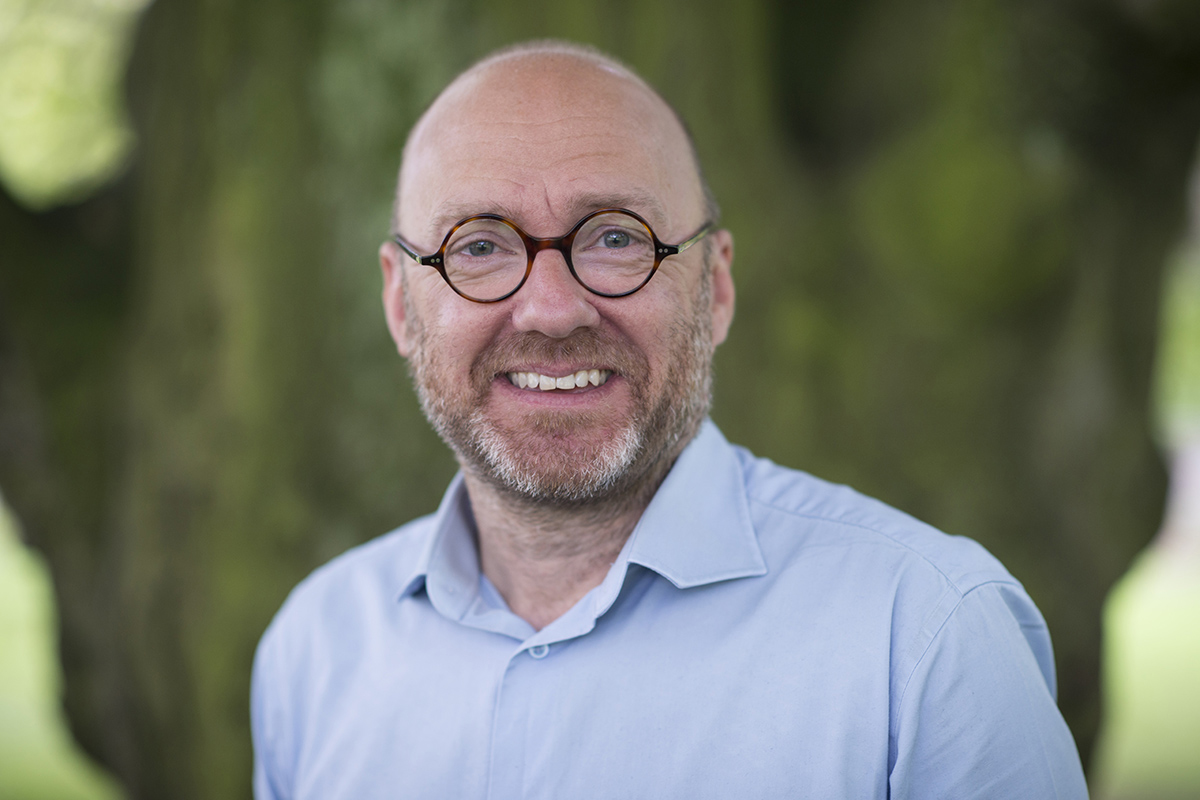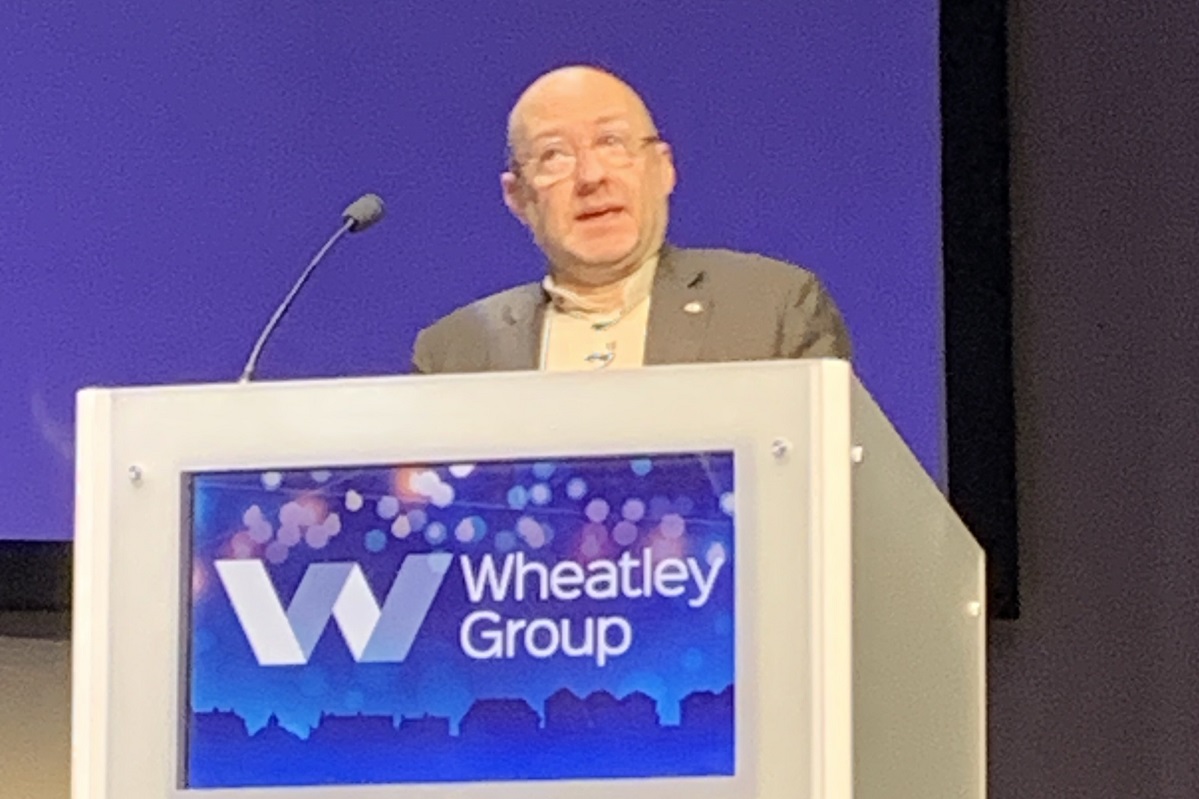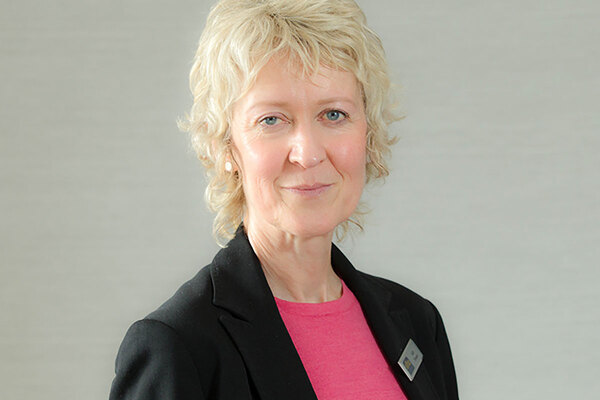15 minutes with… Patrick Harvie MSP
After a turbulent year, Inside Housing catches up with Patrick Harvie, minister for zero-carbon buildings, active travel and tenants’ rights in the Scottish government, to talk about his plans for the sector

You talked about providing new routes for social landlords to buy from private landlords which might be considering leaving the market. Can you give any more detail on that at this stage?
I am not really able to give you a blow-by-blow account of how that might go. But I think there’s strong political interest and we’ve had social housing providers discuss it with us. With the high costs of construction, it might be that acquisitions play a bigger role in the overall increase in the supply of social housing that we aspire to.
It needs to be the right properties, in the right place, in the right context. You need to think about whether you’re going to acquire those on the open market vacant, or whether you’re going to acquire them with a sitting tenant. Does that tenant meet the social housing provider’s allocations policy, or would that need to be some kind of exemption for them to stay in their home?
So there are a lot of details to figure out, even aside from the basic question about whether landlords are able or willing to sell.
Is the data indicating that private landlords are leaving the sector, following the imposition of a rent and evictions freeze?
We don’t have data to show that there’s a direct impact in terms of the emergency legislation. What we do have is the landlord registration scheme, and that shows that there’s a very slight increase – negligible in terms of overall numbers, but certainly no decrease.
It’s basically static in the number of properties registered since just before the emergency legislation was announced.
Now, there’s always going to be a time lag in that and there may be some landlords which have decided that they need to respect the restrictions on implementing evictions at the moment, but they may decide that the next time their property is vacant, they might be ready to sell. That’s speculative at the moment.
There will always be landlords going in and out of the private rented sector and estate agents continue to quite aggressively market how much rental income a property will generate in areas where there is a high proportion of private rented sector homes. So I think some of the apocalyptic suggestions are probably severely exaggerated.
Social landlords are being asked to keep new supply up, to go further on decarbonisation and to keep rents affordable. With costs rising, it is very hard to do all three. What is the priority for the Scottish government?
The agreement that we reached with the social housing sector made it clear that we do need to balance the provision of those wider services that social landlords provide with the protection for tenants. And I think we would be making a profound mistake if we decided that there was just a sort of simple trade-off. You’re absolutely right, that there’s a huge tension in trying to do everything that you want on all of these, but they’re so deeply connected that I don’t think you can do something as simplistic as just saying: ‘We’ll forget one part of that and just do the rest of it.’
Is the Scottish government willing to put more money in to support the zero-carbon transition at the pace it is hoping to achieve it?
We already are doing that: we have the Social Housing Net Zero Heat Fund which many social landlords have already been accessing. We need to continue to build on that. And from the Scottish government’s point of view, we’re very aware that the UK Climate Change Committee has challenged the scale and pace of what we’re doing. We need to respond to that. This is going to be a really important year in terms of stepping up that ambition and the publication of the consultation on heat and buildings, which will apply to the whole built environment, but it’s going to have specific measures that are going to be relevant to the social housing sector as well.
Some of these organisations can be anchor organisations for things like heat networks. I think over the course of this decade, for example, we’re going to be seeing a lot more in the way of heat networks going in, where a social landlord is not just a customer but is contributing to running that business and actually seeing a larger part of our energy system, at a local level, operating in the public interest.
Given the disruption it caused to investment plans, was it a mistake to include the social rented sector in the emergency rent freeze legislation?
What we wanted to do was to give everybody an equal sense of being protected in the first instance. So there was a real value of simplicity of message, simplicity of communication and of reassurance in that first period.
But we were very clear right from the outset, as soon as we were debating this in parliament, that we wanted to work with the sector to get an agreed way forward past the end of that first six-month period. Because of the way social landlords set their rents, it was clear that if we could reach agreement in that way, it wouldn’t have that impact on longer-term rental income.
I know that there were some financial institutions, for example, that got a bit jittery at first about whether this was going to change the investment decisions that they could make in new supply.
We engaged with them and made it clear that this is temporary legislation, and it can only operate for a maximum of 18 months. So any development that’s yet to be approved for financial investment, there’s going to be no impact. I think fairly soon after we started that engagement, that message was understood pretty well.
‘15 minutes with…’ series
In our ‘15 minutes with…’ series, we have a quick chat with the biggest names in the sector about the most important issues.
Previously, we have featured:
Mushtaq Khan, chief executive of the Housing Diversity Network
Barbara Brownlee, chief executive of Soho Housing
Eddie Hughes, former minister for rough sleeping and housing
Geeta Nanda, chief executive of Metropolitan Thames Valley Housing
David Bogle, chair of Homes for Cathy
Laurence Carr, money coach at Yorkshire Housing
Dinah Roake, chair of the London Housing Panel
Sheron Carter, chief executive at Hexagon
Helen Spencer, executive director of growth at Great Places
Julie Wittich, executive director of assets and sustainability at Accent
Ian Mulheirn, executive director of policy at the Tony Blair Institute for Global Change
Kevin Ruth, chief executive of Together Housing
Piers Williamson, chief executive of The Housing Finance Corporation
Seyi Obakin, chief executive at Centrepoint
Fayann Simpson, senior independent director at L&Q
Mark Perry, chief executive at Vivid
Rose Bean, executive director of assets and sustainability at Abri
Ruth Cooke, chief executive at GreenSquareAccord
Ben Denton, managing director at L&G Affordable Homes
Simon Dudley, chair at Ebbsfleet Development Corporation
Emma Palmer, chief executive at Eastlight Community Homes
Tracy Harrison, chief executive at Northern Housing Consortium
Sign up for our Scotland newsletter
Already have an account? Click here to manage your newsletters











